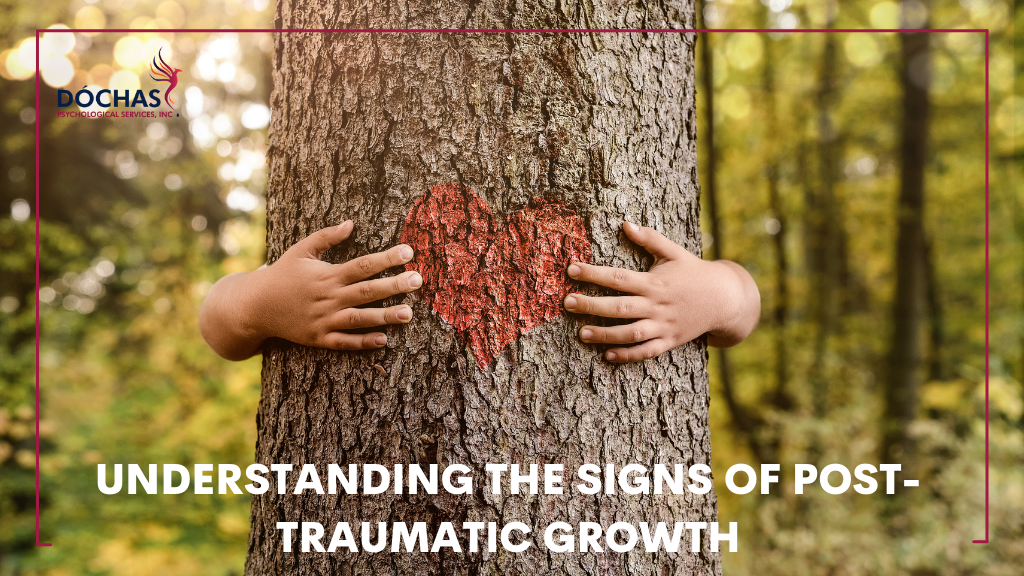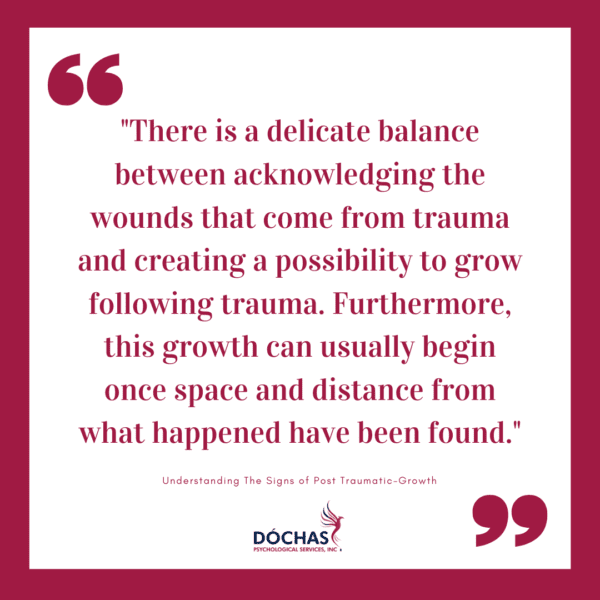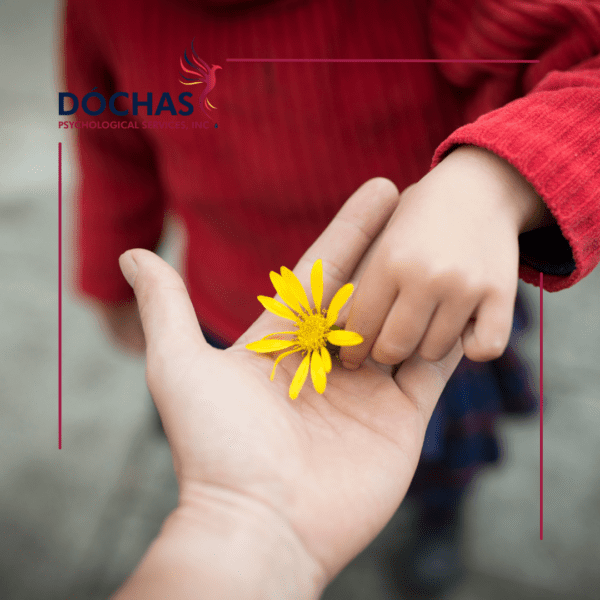Hey, it’s Pooja here on the Dóchas blog here to talk about understanding the signs of post-traumatic growth (PTG). The words “post-traumatic stress” might sound more familiar, and the idea of “growth” after something traumatic might sound strange to you. Let’s start by defining the term. Post-traumatic growth (PTG) is where positive psychological change occurs after highly traumatic or distressing events. For those who come to therapy to address past or recent traumas, knowing that positive change could be possible can be comforting.
However, this is not an alternative to post-traumatic stress—in fact, post-traumatic stress and post-traumatic growth can often coincide. There is a delicate balance between acknowledging the wounds that come from trauma and creating a possibility to grow following trauma. Furthermore, this growth can usually begin once space and distance from what happened have been found.
Understanding The Signs of Post-Traumatic Growth
What does it look like to experience post-traumatic growth? The term was coined by Tedeschi & Calhoun, who developed this theory. PTG can be divided into 5 key areas.
Appreciation of life
- This may include a change in what you prioritize in life.
- You experience a deeper appreciation for your inherent value and life
- You have a greater appreciation for your life in the present
Relationships with others
- You may have discerned which relationships that are reliable during hard times
- You feel closer in your relationships and feel more willing to express emotions
- You have more compassion for others and make more effort to maintain a connection with them — because they’re valuable to you. You know that it is okay to need others
New possibilities in life
- You have developed new interests or see a future path with new opportunities. You might feel a willingness to do better in life and an openness to change things that need to be changed
Personal strength
- You feel more self-reliant, acknowledge that you can handle stressful things, feel a growing sense of acceptance for the way things may work out and an awareness of how strong you are
Spiritual change
- You feel more connected to spiritual themes and meaning and perhaps have developed a stronger connection to faith or religion.
So, this model can provide the hope following trauma that trauma can lead to growth. This theory is something to explore with a trauma-informed trained therapist to help acknowledge what happened and acknowledge the possibility for growth.
If you found this helpful and would like to learn more about understanding the signs of post-traumatic growth, please don’t hesitate to reach out. If you need someone to talk to, we are here to listen.
In the meantime, please reach out and ask us how we can help. You can contact us here by calling us at 780-446-0300 or emailing info@dochaspsychologicalservices.com.
About Dóchas Psychological
Dóchas Psychological Services is a well-established and trusted therapy clinic located in Spruce Grove, Alberta. At Dóchas we value the idea that everyone deserves a safe space. Through connection and education, our team works hard to build a trustworthy relationship with each of our clients. It is our goal to create a community for our clients to feel like they belong.
Disclaimer
Information provided through Dóchas Psychological Services blogs or vlogs is meant for educational purposes only. They are NOT medical or mental health advice. You can read more about our disclaimer here.











